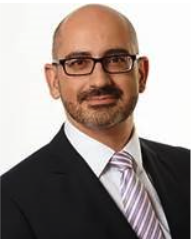Gold Coast 18th January 2024: Endometriosis Australia, the country’s leading patient advocacy group for those living with endometriosis, has been successfully recognised by the Australia Government and Department of Health as the Peak Body for the Endometriosis community in Australia and received $1.328 million in funding over 3 years to continue its work.
As a Peak Body organisation, Endometriosis Australia will be amplifying the voices of those living with endometriosis, a life-defining, incurable complex gynaecological condition, to increase the community’s awareness.
The news is welcomed by Maree Davenport, the CEO of Endometriosis Australia, who says that the Peak Body recognition will enhance Endometriosis Australia’s ability to lead advocacy, instil the community’s confidence and support them to improve the lives of those impacted by severe pelvic pain and menstrual issues. This awareness of symptoms will speed up diagnosis, as well as treatment of this debilitating condition:
Endometriosis Australia will receive $255,000 over 3 years to build on its work as peak body supporting the endometriosis community. In addition, it will receive $787,000 to further develop workplace guidelines, educate organisations about staff living with endometriosis, and create better awareness and open communication over the next three years.
“The Australian Government funding for Endometriosis Australia’s Workplace Assistance Program will help employers and employees manage endometriosis in the workplace to improve the quality of life and productivity for people living with endometriosis, its chronic pain, menstrual disruption, the need for surgery and fertility challenges.”
A further $286,000 over 3 years will go to Endometriosis Australia so they can reach priority groups with accessible and fit-for-purpose resources so all Australians can be better supported to live with endometriosis.
“Endometriosis Australia welcomes the funding for its work with Aboriginal and Torres Strait Islander, Rural, Regional and Remote communities, Culturally and Linguistically Diverse (CALD), those from Non-English-Speaking Backgrounds (NESB), and gender diverse (LGBTIQ+). These communities are challenged by intersectional disadvantage, with cultural, social, and religious barriers that prevent discussions about menstruation and menstrual disorders. These ‘taboos’ lead to a lack of knowledge, impact menstrual literacy and too often deter women from seeking help or any treatment for symptoms of endometriosis pain and other gynaecological disorders.”
The announcement came seven months after the five-year National Action Plan for Endometriosis expired. The Plan – which the Turnbull Government launched in July 2018 – aimed to improve awareness, understanding, treatment of, and research into the condition.
And, while a lot has been done for the Endometriosis community in the past five years, today the average time between the onset of symptoms and diagnosis for those living with endometriosis (which affects 1 in 7 Australian females and AFAB by their 50th birthday) is still a staggering 6 and 8 years. Surgical intervention for definitive diagnosis and treatment is taking even longer, posing not only health but also financial strain on those living with the condition.
While welcoming the launch of 22 Endometriosis and Pelvic Pain Clinics across all states and territories, Endometriosis Australia is advocating for better education and support for all GPs and healthcare professionals to recognise the symptoms of endometriosis, with clearer referral pathways and a toolkit of multidisciplinary health care to empower their patients to confidently self-manage their endometriosis symptoms.
Tired of waiting for their turn, around 1 in 10 of those who are diagnosed with endometriosis, eventually self-fund their surgery. The latest AIHW data identified that almost two-thirds, 68% of endometriosis-related hospitalisations took place in a private hospital, while 28% were for public patients. One of the key goals for Endometriosis Australia is to address the diagnosis gap.
For media enquires please contact:
Gabriela Czwarnos HAVAS Red E: gabriela.czwarnos@havasred.com M: 0450 396 290
About Endometriosis Australia:
Endometriosis Australia is the preeminent peak body for endometriosis in Australia. Since 2013, the organisation has been leading the charge nationally and internationally in raising awareness and understanding of endometriosis. Endometriosis Australia lobbied for and supported the development of Australia’s first National Action Plan for Endometriosis (NAPE), aimed at improving patient and medical community understanding of the disease. This was a continuation of the organisation driving the first discussion of endometriosis in Parliament in 2017. Endometriosis Australia is a nationally accredited charity that raises awareness, educates and funds research for endometriosis. We are committed to empowering patients with the knowledge to be in control of their healthcare and promoting patient-centred care solutions.
About Maree Davenport, The CEO:

Maree Davenport is the Chief Executive Officer of Endometriosis Australia. She also serves on the Federal Department of Health Endometriosis Expert Advisory Group and the organising committee for the 2025 World Congress on Endometriosis in Sydney in May 2025. She was the youngest woman elected to the Parliament of Victoria (aged 28). Maree shared the life-defining challenges of endometriosis through her daughter, who developed symptoms at the age of eight, and her niece, diagnosed with fertility challenges. She has a Master of Leadership in Gender Equality, is an NMAS Accredited Mediator, a Member of AICD and GIA, qualified in governance and risk, an Ambassador for Carlton Football Club and Member of Chief Executive Women.
About Associate Professor Anusch Yazdani, The Medical Director (Brisbane):

Widely published, Associate Professor Yazdani’s expertise lies in reproductive endocrinology, assisted reproduction, recurrent IVF failure and pregnancy loss, endometriosis and pelvic pain. Surgically, he specialises in excisional endometriosis surgery, reconstructive reproductive surgery, and minimally invasive hysterectomy, including robotic surgery. Professor Yazdani leads the Endometriosis Australia Clinical Advisory Committee which includes high profile multidisciplinary medical specialists, such as Professor Luk Rombauts (Melbourne), the Immediate Past-President, Fertility Society Australia and New Zealand and Immediate Past-President, World Endometriosis Society, which estimates around half of those challenged by fertility have endometriosis, with 30% of IVF patients diagnosed with the complex gynaecological disorder.

